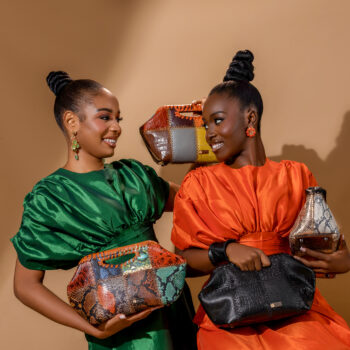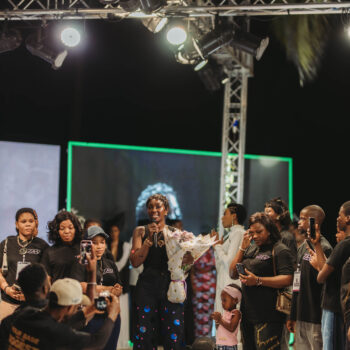Written by Edwin Okolo
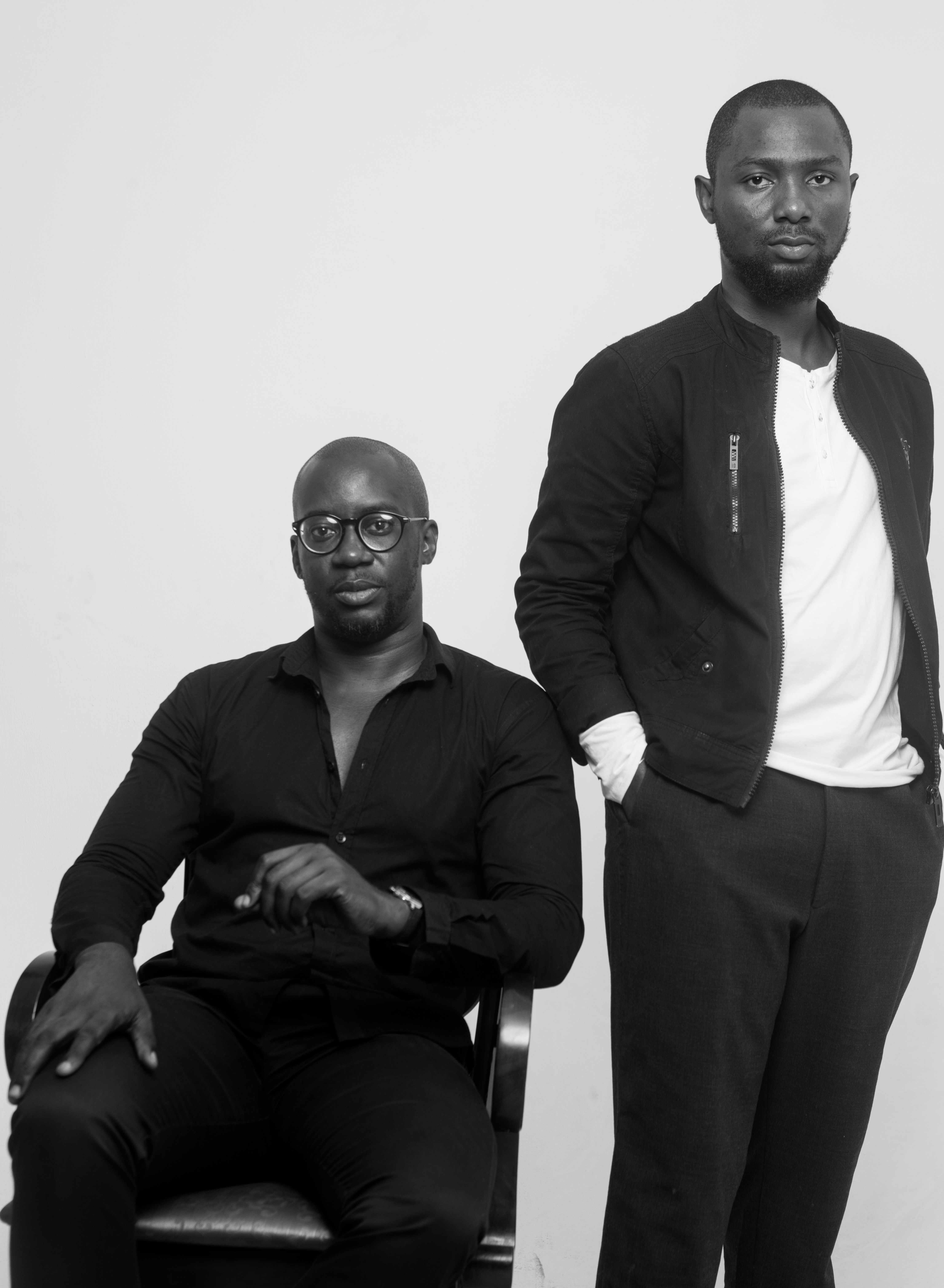
Building an alternative fashion and lifestyle bubble in an economy that is notoriously fickle and hostile towards innovative businesses is surprisingly lonely work. This was the sense I got from speaking at length with Joseph Ike and Ola Akindeinde of JZO Fashion, who have been described as ‘mysterious’, ‘standoffish,’ and a recurring favourite, ‘notoriously reclusive’.
“We’ve been called worse.” Joseph concedes, tickled by my choice of words when I bring it up. The duo is considered ‘reclusive’ because they made the deliberate decision to separate the businesses in their group from their personal brands very early into their journey into fashion. Both founders had built creative and professional careers in other fields and had some experience
with how difficult it was to walk the tightrope of maintaining simultaneous personal and professional brands.
The Nigerian fashion industry has gained some notoriety for its many design labels propped up almost entirely by the outsize personal brands of its creative directors/founders, and the duo didn’t want to replicate that dynamic for their brands. For them, it made sense in the long term to invest in creating processes within a structure that allowed JZO fashion and its affiliate brands to find their own voices in a saturated market and thrive purely an understanding of their target customer’s needs and savvy branding.
“Building a business is like raising a child,” Joseph says, making the first of several familial allusions over the course of our conversations, “To be a good parent, you need to take a step back at some point and allow your pet projects fail or succeed on their own merit.”

The JZO method of kicking the hatchlings out of the nest seems to be working. Their three fashion brands have grown near-fanatical core audiences (including Chimamanda Ngozi Adichie) and the international press is finally taking notice. It feels like the right time for the duo to take a peek from behind the curtain and survey the contraption they’ve been building to navigate the uncertain seas of Nigeria’s fashion industry. And what a magnificent thing it is.
The company is built on a skeletal but flexible administrative framework that connects the businesses through meticulous paperwork, legal relationships, and accounting. Also on the backend is Garment Production (GPi), their mass production apparel company that serves fashion businesses who need to mass-produce in conservative quantities that reflect the realities of retail in Nigeria. GPi is also experimenting with solving the raw material challenge by understudying fabric weaving and dyeing businesses with a goal to scale once an opportunity presents itself. GPI and the admin sections also serve the company’s client-facing businesses; JZO, Zii Studios, and Kyau Studios its menswear, high street and plus size women’s wear fashion labels. The newer retail division The Republic is split into a fashion hub and a lifestyle hub, grown out of a need to solve a persistent customer retention problem plaguing other fashion businesses and glean valuable insight into consumer buying habits. When taken at scale, the only term that truly describes the complex system that JZO has built is an ecosystem. Sure, the duo still has some control over the company’s direction, but its growth is autonomous.
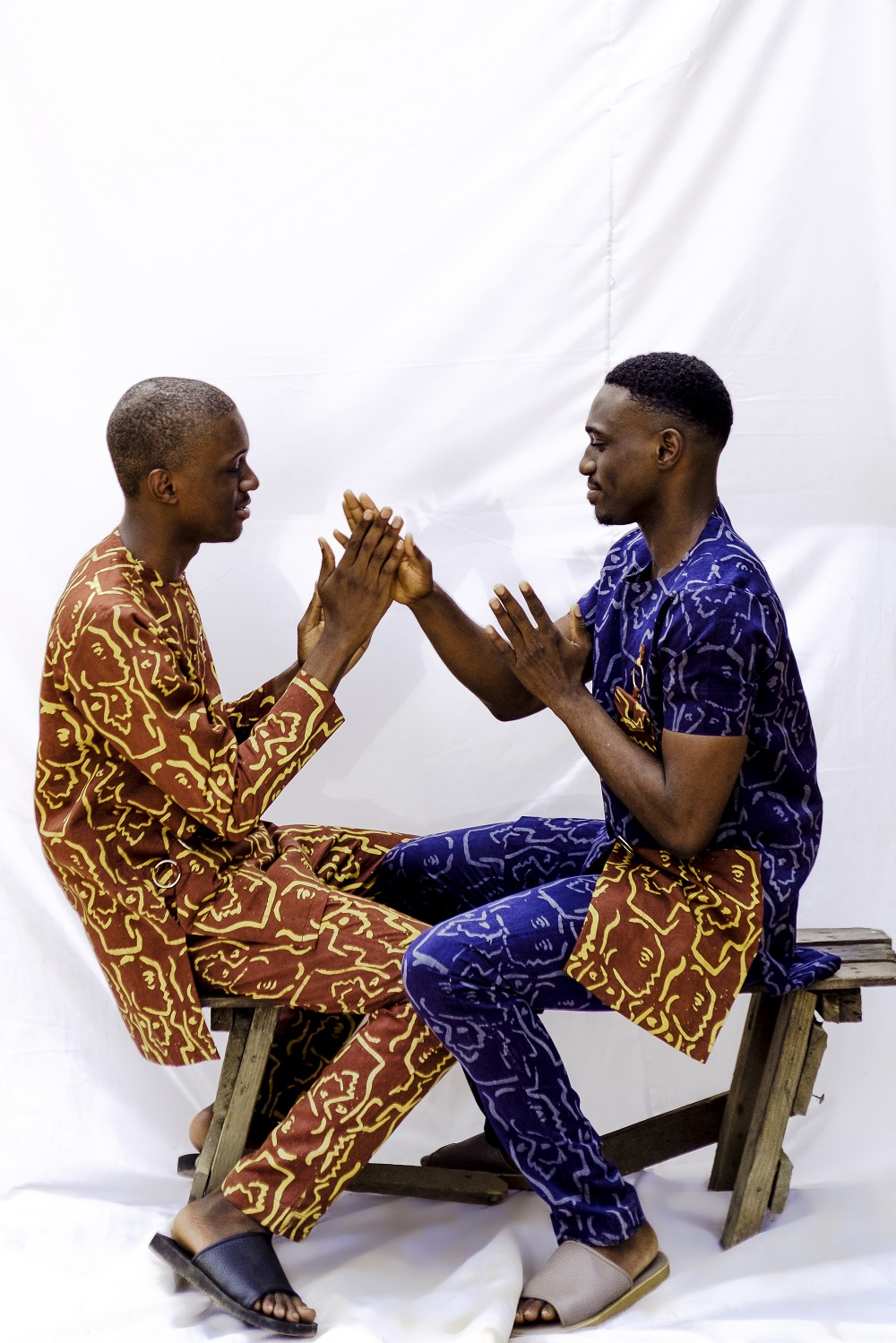
“With every expansion, our tribe grows and we gain more friends who believe in our message,” Joseph explains. “But that has also meant, attention that we didn’t anticipate.” JZO has operated outside of the Lagos fashion ecosystem while acknowledging its influence and value to the many people it serves. Because of this, the duo relies almost exclusively on personal conviction and customer feedback as to their solitary gauge of success. But once in a while, something happens that jolts them into truly appreciating the phenomenal growth that has happened in the last few years. “The last time it happened to me was when Omoyemi walked into the store for Denike’s presentation.” Joseph means Omoyemi Akerele, the director of the Lagos based fashion non-profit The Style House Files, and convener of Lagos Fashion Week, the platform where JZO Fashion, the duo’s design label had its runway debut. She took in the clothes, posed for photos with Adenike Adegboye, the designer debuting a new collection and had a little chat before she left.
Her visit was a pleasant surprise, but for Joseph, it was also revelatory to hear an unfiltered perspective about how Republic Retail and the larger company is perceived from someone so influential in the Nigerian fashion industry.
With all that has happened, it is easy to forget that this all started with a menswear experiment.
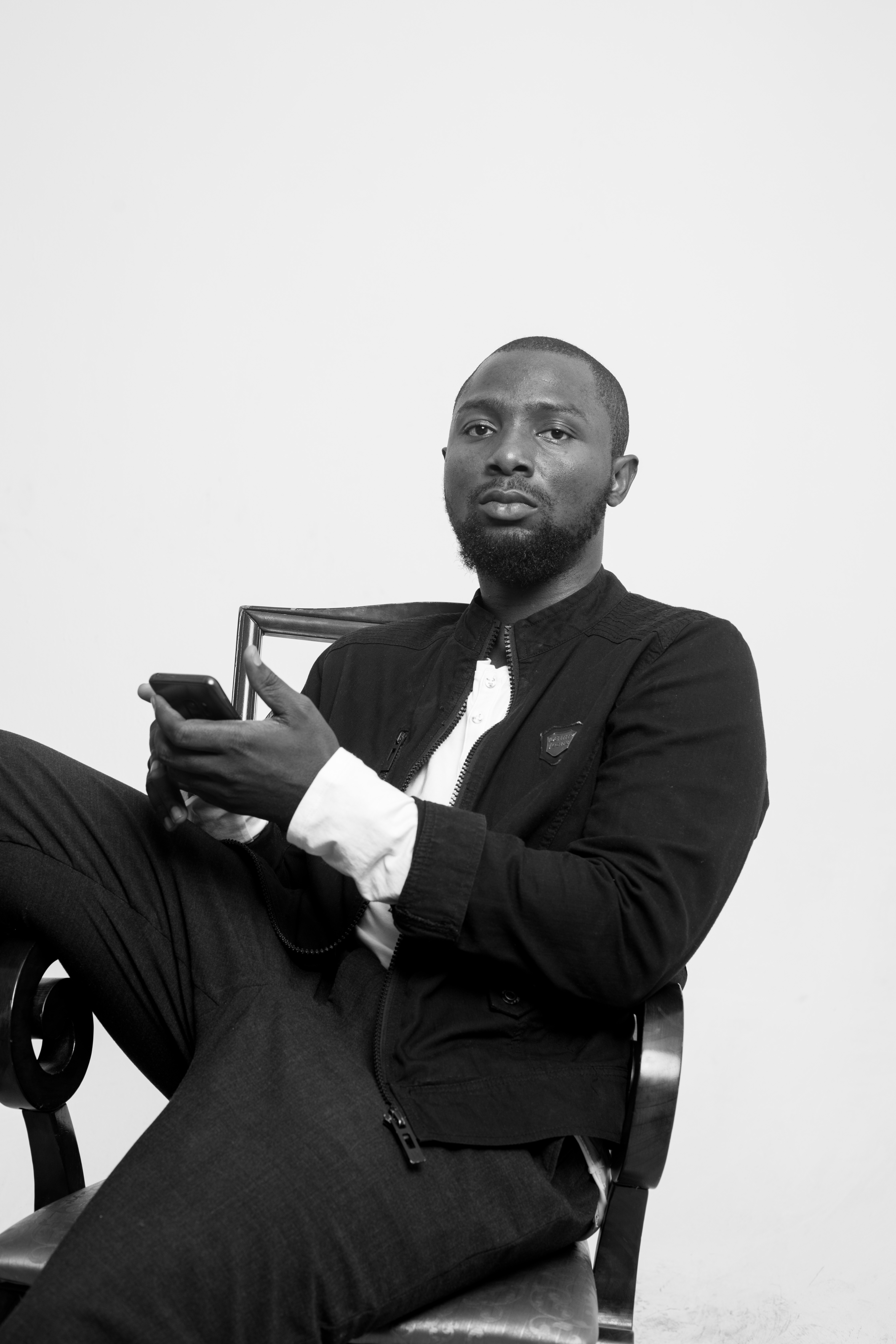
THE KD BOYS EXPERIMENT WITH MENSWEAR
“When we started off in this business we had no practical experience of how to actually run a fashion business in Nigeria. Sure, we had numbers, ideas, theories, and assumptions but all it’s all useless once you face the reality of doing business here.” JZO menswear, their pilot business, was started to solve a practical need. There were no menswear brands selling staples at affordable prices. It was a niche in the market that personally affected Ola and Joseph and one they felt they could solve. Growing a clientele was easy but maintaining that clientele necessitated they re-evaluate many of the assumptions on which they had built their business model. They had to restructure to take advantage of the realities of running a fashion business in Nigeria where the elements taken for granted in established industries were either non-existent or didn’t function as expected.
“We release 3 collections a year for JZO Menswear,” Ola tells me, “ ‘Summer’, ‘Winter’ and resort collections. The collections are signature of the brand, but all through the year, we make ‘drops’ of smaller capsules for the core JZO Menswear audience, who shop at our retail partners.”
The JZO menswear brand served as ground zero for many of their business model experiments. They expanded the brand to combine fancy dress, formal wear and casual wear options in versatile pieces, at realistic price points. JZO menswear created much of the myth around the duo, including the idea that the menswear label is a ‘Northern’ brand; a region of the country known more for cutthroat politics than cutting edge design.
“The vision for the JZO menswear brand was to take themes, ideas and aesthetics, well known to Nigerians and Africans and dismissed as traditional or quaint and contemporize them for a contemporary audience.” Joseph offers as an explanation for the brand’s distinct Afrocentrism. “Kaduna was home for us at the time, so it made sense to draw our early inspiration from where we were.” They were quickly stereotyped as ‘KD boys’, an assumption freed them of many of the peripheral success markers expected of other emerging brands out of Lagos, like stocking with a major retailer and organizing collection showcases, before the brand was ready to indulge these useful but non-essential expectations. JZO menswear wasn’t tied to any production cycles so they could choose to either reduce their frequency of production to increase volume or experiment with apparel production. There weren’t that many local solutions for mass production at the time, and; it required significant investment to mass produce in the quantities that international apparel factories require to engage a brand. Ola and Joseph ran the numbers and sought advice from their growing industry network before establishing a pilot phase apparel factory, producing for themselves and brands they had
close relationships with.
Mid-way into the pilot phase originally designed to last two years, a national tragedy changed their fortunes. Nigeria went into a recession, crashing the value of the Naira against international currencies. That forced brands that would have otherwise produced abroad to seek out local apparel production solutions, just when GPi was hitting its stride. That recession also crippled many of the existing retail brands, creating an opening for JZO to experiment in providing an alternative retail/lifestyle experience. Joseph also admits the stakes are higher now that JZO is no longer a small menswear brand figuring out a changeling industry. There are customers, partners, industry insiders, retailers and collaborators who are all buoyed by JZO’s success, any mistakes now will ripple in ways that they can only truly assess in hindsight. That knowledge is sobering enough to keep them cautious. “It seems random, but our decisions have always been driven by market demand, and executed only when we know that that financial projections match our expectations and we’ve mitigated for all possible risks. We don’t want to lose ourselves in our quest for growth.”
This idea of losing yourself in service of profit is an idea Ola circles back to many times during our conversation. It is a guiding principle for their brand, much like their insistence on accessibility across their brands. “There’s money to be made in fashion,” he tells me, “but only if you come to fashion clear-eyed that you are investing your time, money and energy into a long term business model, not making a quick deal that you hope will give you fame or wealth.”
It doesn’t hurt that Ola and Joseph were friends long before they started their company and understand each other’s strengths and weaknesses. Both are detail-oriented, but Ola enjoys the challenge of the design process while Joseph ensures all the moving parts work at optimal levels. Both are introverted, a useful trait in a discipline that involves long periods of isolation, but when the situation necessitates public interactions, Joseph serves as the spokesperson for the brands with the express consent of Ola.
“It’s like co-parenting,” Ola explains, taking over the conversation, so I understand how important their stance is on this, “the love we have for our children means that even when we disagree on how to raise them, the love we have for them means we’re always willing to compromise.” They both feel incredibly blessed to have a singular vision for their brands and different but complementary ideas on how to execute the vision. They also agree on investing significantly to make their staff happy and enculturating employees in such a way that staff at every level are encouraged to buy into the vision for the JZO group.
Those complementary ideas are best expressed in how the design labels under the company run. JZO menswear, Zii Studios, and Kyau Studios have identical brand ethos expressed in significantly different ways. Each brand is run independently of the others, offering the same principles of accessible design at realistic price points to a clearly defined target audience with specific needs. Those consumer needs determine the frequency of product drops, the kinds of retailers the labels are stocked with and the public image that is cultivated for each brand. It has also determined the kind of collaborations they have made in the past, and the kind of collaborations they are considering now that their brands have found their niches and have the power to amplify other smaller, emerging brands. Collaboration and mentorship are a sensitive subject for them, and they are careful not to blur the line between both
“It’s a headache to collaborate with a big brand,” Ola tells me. He has less time for diplomacy and I come to relish when he takes over our conversation. “If we had more collaborators when we started our brand to mentor us and offer advice, I believe we would bigger than we are we now. So when we see a design label that shows potential, I insist we take the opportunity to help them grow.” They go through all this trouble because they attribute an invaluable part of their own evolution as design duo to the collaborators and competitors they met along the way who were willing to share their own experiences in running fashion businesses in Nigeria. Some went gone as far as physically introducing them to fabric vendors, offering solutions when the duo encountered growing pains and supporting them with expertise and industry introductions. The Nigerian fashion business experience is not something that is easy to operationalize into an easily replicable model so having a variety of experiences to draw from made all the difference between success and failure for them. Still, it took them some time to learn to accept help when it came. Experiential collaborations with accessory brands (Ethnik by Tunde Owolabi and Moze Apparel) and retail partnerships with beauty brands (Inglot Nigeria) and in-store semi-permanent pop-ups (Ouida Books) are all growth avenues the company has explored. Now that the JZO brand is more overt about its Pan-African focus and has cemented its standards for quality and creativity, it can better seek out complementary brands for ‘long term committed unions’ where there the relationship between JZO and its partner brands is complementary without ever lapsing into parasitism.
“It’s a natural instinct to question the motives behind someone sharing all their trade secrets with you.” Joseph says, “so we did, and got answers.” The answers they got seemed consistent, whether they are the ones being mentored, or mentoring other designers who were either collaborators or somehow entered into their orbit. “The market is big enough to accommodate all of us. The more solid players are within the market, the more influence they can exert on standards and quality.”
Not everyone sees it this way. Some brands have interpreted benevolent offers of assistance as opportunism and respond with paranoia and hostility to attempts to help or mentor. But JZO remains receptive to assistance because even now, they are still benefitting from the candor of other players in the market. They feel compelled to pay forward the goodwill, if not for anything else, the possibility of sparing other emerging brands some of the problems they faced coming up. There are, however, some obstacles no matter of hand-holding can mitigate.
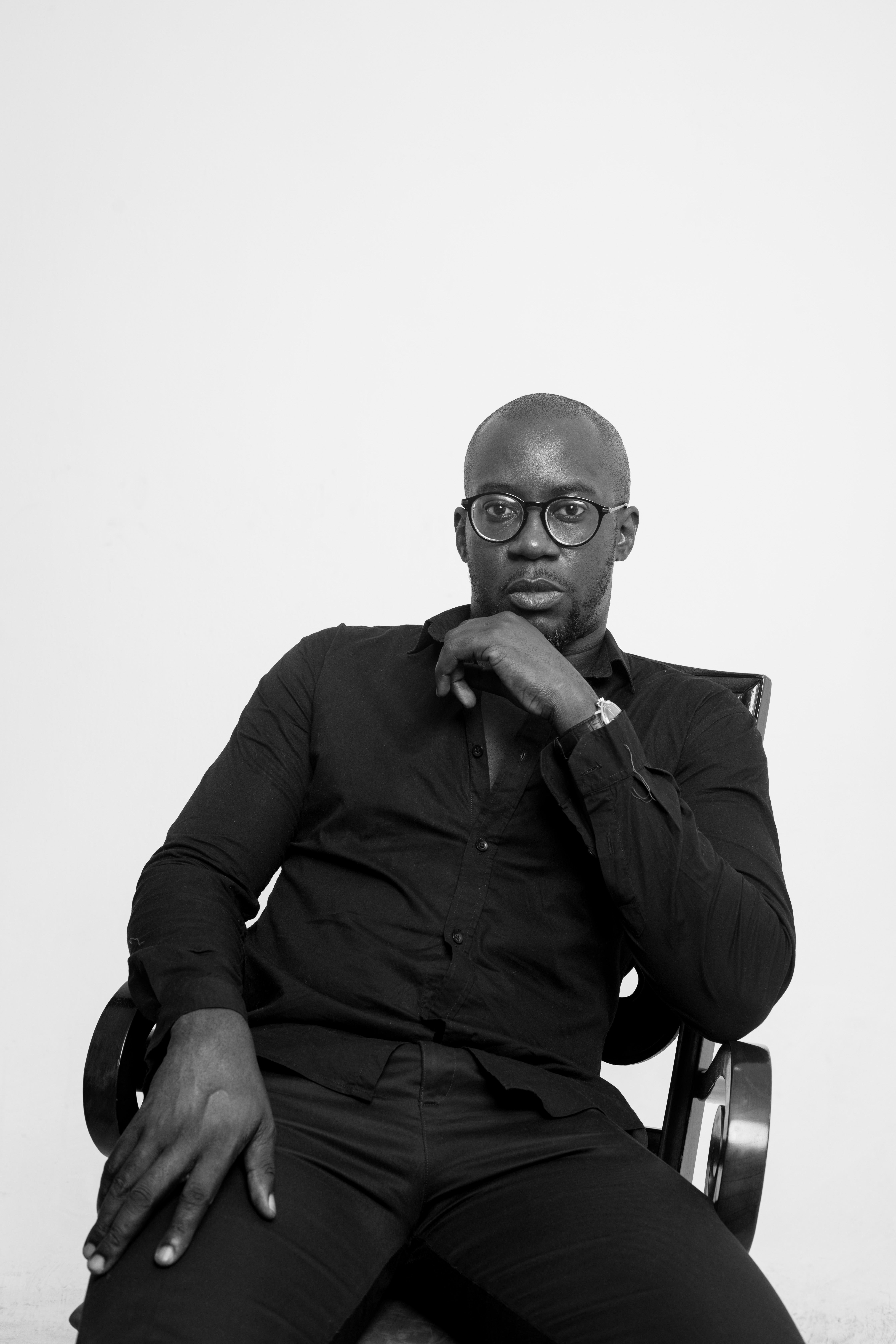
BUILDING THE FUTURE
Joseph and Ola are radically honest when I ask them about industry challenges. Many of the company’s offshoots were created to tackle small but crippling problems like finding the right retailer or clothing recalls thanks to substandard finishing, challenges they discovered were symptoms of a much larger problem; the ‘silo-esque’ nature of the industry and the aversion to information sharing between these silos and between silos and final consumers. There are no directories for machinists, no regularly updated database to tell a designer when fabric is in stock. Even customers only find out about new drops from designers when they visit stores. This makes it incredibly difficult to automate even the simplest of tasks or to standardize service from suppliers. These gaps allow avoidable problems like the ‘invisible zip’ fiasco of 2018 spread through the industry before anyone realizes a part of the system is defective. For a vertically integrated business like the JZO group, with interests across sectors, problems like this can be incredibly damaging. “We’ve learned to build our own systems. We stockpile where we can, we adapt to market realities, no matter how much immediate discomfort it causes us. The customer isn’t unreasonable, they learn to adapt as well.” Production and retail complications are also a present concern thanks to the poorly thought policies of Nigeria’s hostile and unpredictable government on the economy. Combined with the dearth of industrialization and dependency on importation for even the most basic of raw materials, it feels almost impossible to plan ahead. Investors are reluctant to fund high-risk local businesses so the funding for JZO’s businesses is sourced internally and profits are plowed back into the company to fuel growth.
As a result, their growth, while accelerated for the Nigerian market, is much Slower than their contemporaries in countries with more structured industries. But Ola and Joseph are too busy to entertain any kind of disillusionment, the peculiar needs of the Nigerian market leave room nothing other than a dogged commitment to the cause. With their design concerns largely addressed, they can their focus now on understanding the challenges that affect mass manufacturing and retail. “The strength of your retail sector is intrinsically linked to the strength of your mass manufacturing sector.” Joseph tells me, deconstructing mass hysteria around the idea of ‘scaling’ in the Nigerian fashion industry. He believes that change must start with the local industry acknowledging this correlation and being realistic about the scope of its mass manufacturing & retail needs. He surmises that the mass manufacturing needs of a single international fashion conglomerate like LVMH to meet the retail demand from its affiliate retailers dwarfs the production and retail capacity of the entire Nigerian fashion industry across buyer classes. Nigeria’s fashion industry is in its infancy, and its ambitions need to reflect that reality. The current cognitive dissonance that exists in the industry has led brands incapable of meeting global demand to aggressively pursue global retail opportunities, competing with more established brands that quickly crowd them out of business. JZO is determined to not repeat those mistakes.
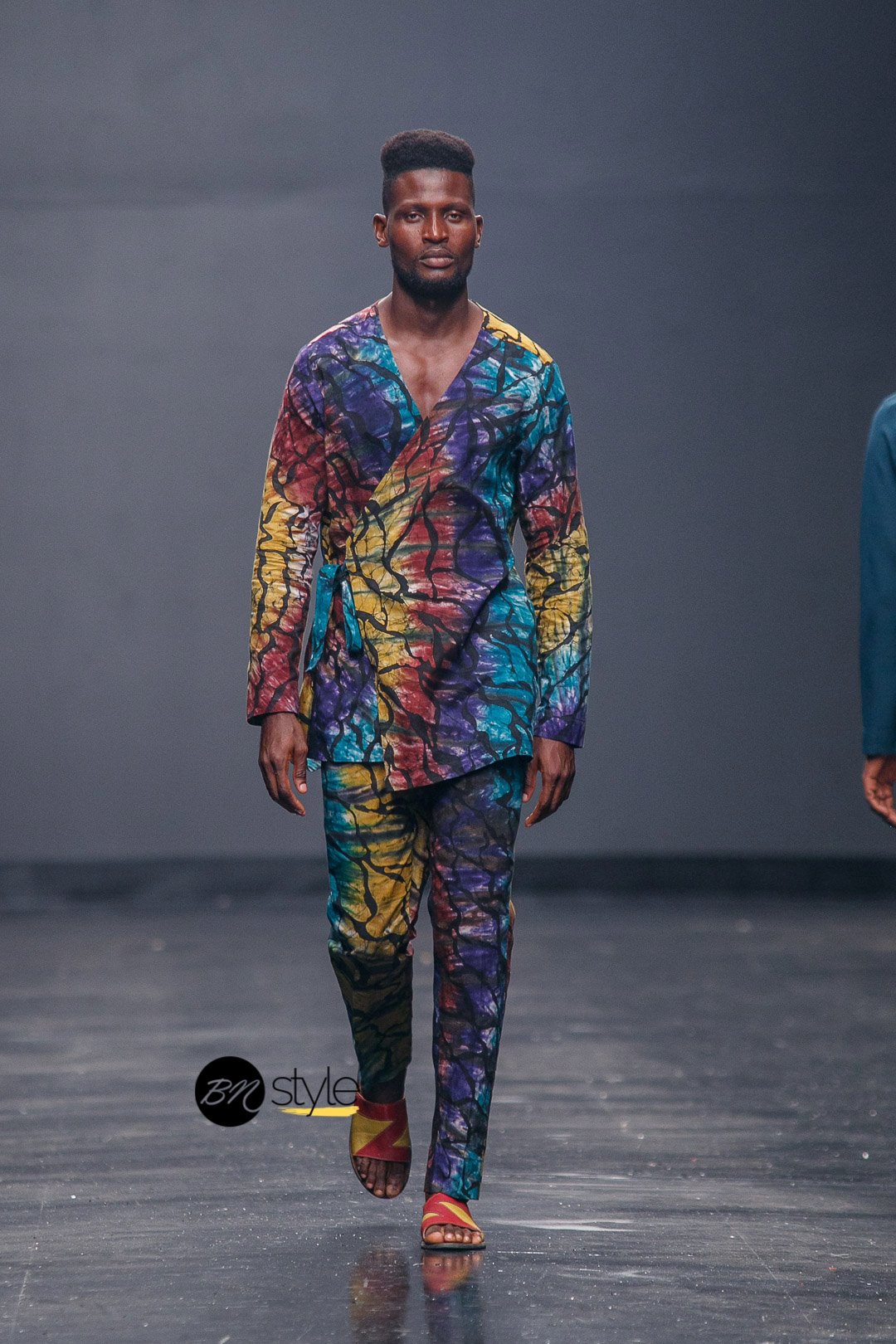 “The experience we’ve gained running GPi and Republic Retail allowed us how to responsibly scale production and harmonize the interplay between demand and supply. That’s how we can account for the growth we’ve seen in our businesses.” Sticking to what works is also why the duo debut one collection a year at the Lagos Fashion Week run by Omoyemi Akerele, one of JZO’s champions over the years. “There’s a soft spot in our hearts for the Lagos Fashion Week. Not only is it excellently organized and a beautiful showcase.” Ola explains when I ask why they haven’t debuted collections anywhere else. He concedes that because they aren’t based in Lagos, there are a lot of showcase opportunities they are simply are not aware of, or invited to. But when they do get invited, they filter requests based on their corporate ideal of aligning their brands with platforms capable of holding their own on a globally competitive stage, a standard by which they assess their own work. Lagos Fashion Week meets that criteria for them, and offers their collections the most strategic platform in terms of press mentions, access to buyers and other industry insiders.
“The experience we’ve gained running GPi and Republic Retail allowed us how to responsibly scale production and harmonize the interplay between demand and supply. That’s how we can account for the growth we’ve seen in our businesses.” Sticking to what works is also why the duo debut one collection a year at the Lagos Fashion Week run by Omoyemi Akerele, one of JZO’s champions over the years. “There’s a soft spot in our hearts for the Lagos Fashion Week. Not only is it excellently organized and a beautiful showcase.” Ola explains when I ask why they haven’t debuted collections anywhere else. He concedes that because they aren’t based in Lagos, there are a lot of showcase opportunities they are simply are not aware of, or invited to. But when they do get invited, they filter requests based on their corporate ideal of aligning their brands with platforms capable of holding their own on a globally competitive stage, a standard by which they assess their own work. Lagos Fashion Week meets that criteria for them, and offers their collections the most strategic platform in terms of press mentions, access to buyers and other industry insiders.
It’s a partnership that works. As a company, JZO has balanced cautious experimentation and rapid expansion, leveraging partnerships, platforms and the goodwill of mentors to blaze its own path in mass manufacturing, design, lifestyle-focused retail.
Half a decade in, they remain wildly optimistic about the possibilities that exist within the Nigerian fashion industry and the potential that lies untapped. But far too many industry professionals, even in government positions with cataclysmic influence are cowed by the massive amounts of financial investment and professional expertise needed to structurally convert this capacity into a thriving, self-perpetuating, profit-making industry. From JZO’s experience in the industry and the realities of doing business in Nigeria, Ola and Joseph know a defeatist approach serves no one. Instead, they propose baby steps. “We see this capacity and we know our limitations as an emerging company. But our focus is not on waving a wand and changing the industry, but on making investments in the spaces where we find ourselves to convert the capacity there, and helping where we find opportunities.”
If other businesses take a similar approach, the cumulative effect of micro-investment across several sectors will drive things forward. However you choose to look at, the JZO duo is convinced the industry yields hope. As a parting shot, I ask for an augury of the future of the company Ola and Joseph spent the last half-decade building – “Among the top 5 most profitable Fashion Businesses in the world.” they say for JZO’s labels. “The Top African Fashion Retail Group in the Globe.” They say ambitiously
for Republic Retail.
Lagos is on the horizon, but just not yet.

